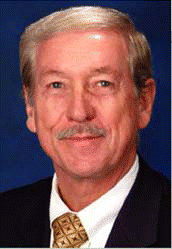Determining the amount of cost savings has been a contentious issue. In 2005 the state claimed to have saved $110 million, but only $48.7 million could be certified. The amount of savings mattered because health plans and employers had to match it. They filed suit, arguing that the savings was a tax and the savings offset payment an unconstitutional delegation of the legislature’s taxing powers. In 2006 Maine’s superior court ruled in Dirigo’s favor, saying that the offset payments are the means by which the legislature redistributed savings in the healthcare system to make health insurance available to a greater percentage of Maine citizens.
Apparently, Mainers are indifferent to the state’s largesse. In 2005 Dirigo expected to enroll 27,000 people; only 9,000 signed up. Of those, only 2,000 were uninsured.
West Virginia
In West Virginia, Medicaid’s $2.1 billion budget is the state’s largest single line item, and there are 245,000 uninsured citizens. In 2004 the state created a partnership with insurers to offer a small business plan at 25% below market rates. Steve Wetmore, MD, Chairman of the Department of Otolaryngology at University of West Virginia School of Medicine, says that SCHIP and Medicaid don’t pay much but are fairly open. We and the patients don’t have to jump through many hoops for service, which is good.
What makes West Virginia’s initiatives intriguing is that it has gone beyond fiscal mechanism to focus on patient and physician behavior. Medicaid patients must agree to health screenings, avoid unnecessary emergency room visits, keep doctors’ appointments, and follow physician orders. Physicians are legally obligated to report this information to the state Medicaid agency. Furthering personal responsibility, the state has targeted 75,000 obese citizens that it estimates contribute $100 million annually to the Medicaid health care tab. Modeled after Tennessee’s successful program, they are entitled to free Weight Watchers services.
West Virginia has also embraced the advanced medical home (AMH), a concept promoted by the American College of Physicians. William Golden, MD, Chairman of the ACP’s Board of Regents, says, Congress was very receptive. An AMH is usually a primary care practice that is paid for coordinating care with specialists and other resources, although a specialist may be the AMH.
Overall, Dr. Wetmore sees West Virginia’s initiatives as forward and backward steps. The state legislature is losing out on a 3:1 federal match for Medicaid dollars. We can’t afford to leave money on the table…. Our leaders are also looking at worker’s comp and underfunded teachers’ pensions, pulling them in too many directions. Although he likes the state’s initiatives to help Medicaid and the uninsured, he doubts it will help surgical specialists because it’s geared to primary care.

Leave a Reply